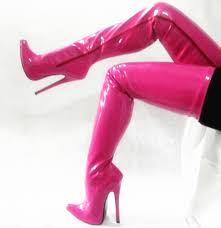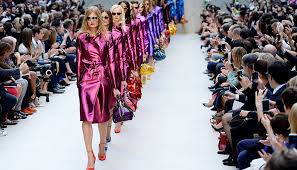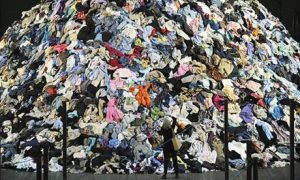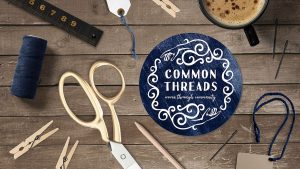Death by Consumption
Fast Fashion and 52 Seasons of Planned Product Obsolescence
One thing most social theorists agree on is that our contemporary culture is marked distinctly by the insatiable appetite we have for ‘stuff’. Consumer items, clothes, accessories, iPhones, flat screen TVs … the list goes on.
But why is it like that?
Well, they argue, it’s because one of the key things that defines Western society is that we, as individuals, relate to each other through the commodities we consume. In other words, we feel defined by our stuff. It seems to be through our product choices that we relate to each other and even seek to forge our own identities. Our consumer behaviour has become so intrinsic to our sense of self, to our identity, that the notion of shopping for things (clothes and accessories for example) goes way beyond our basic need to clothe ourselves. Instead, the products we buy have somehow become linked to who we feel we are in the world.
Wait……What?
Somewhere along the line, it seems we’ve been led to believe that our possessions are an extension of who were are. Really, it’s a very clever trick of modern economic Imperialism.
Let’s take something as simple as a mobile phone cover as a perfect example. There are endless product choices available to match consumer preference. Sleek, resilient and slimline to suit the pragmatic personality. Pink latex or leopard stripes for the more overt or outrageous. Tough, durable, shock resistant and a nice shade of solid khaki green for those who may fear the zombie apocalypse. Cute and sweet with a little tiny tassel on the top to match those with a bubbly and light-hearted disposition. The qualities of the product become an extension of our individual personalities and we each become differentiated by our product choices.

This strange process of the personification of our ’stuff’ is actually a thing, believe it or not. Sociologists go so far as to state that our consumer choices often become a unique extension of ourselves through this intriguing process of personification. Items become personalised so to embody an individual’s unique personality, values, beliefs and personality.
Interesting isn’t it? But kind of unsettling too when we consider that advertising and marketing are specifically designed to encourage us into a state of continued consumption; designed to make us feel like we are incomplete without the latest product, or ‘off trend’ if we are not wearing the latest season…of which there are now 52 in retail culture, not the good old-fashioned 4 seasons we grew up with as children.

Curiously, our shopping behaviours have also changed over the years. As a society, the act of shopping has moved from a form of necessity, to a kind of entertaining social past time, a source of entertainment or leisure activity. The dynamics of it all start to feel a little surreal.
So what does this actually mean apart from making us feel a little gullible?
Well, to answer this, lets take a tiny glimpse into the fast fashion industry to give us a deeper understanding of where it all leads….
An estimated 60 BILLION kg of textiles are produced annually around the world. 378 billion litres of water are required to make this happen. 150 billion items of clothing are delivered out of factories each year. 1.56 billion dollars worth of clothes, accessories and personal care products that were never actually used were wasted by Australians in 2004. Studies have shown that most people wear no more than 60% of their clothing, leaving 40% untouched…..add to this widespread environmental degradation, massive human rights violations, child labour practices, unsafe working conditions, wide spread chemical use in textile manufacturing….the list goes on… *

If you’re left feeling decidedly uncomfortable about all of this, then you’re not alone…..
So what do we do? How do we feel more empowered to make choices and changes in our lives, rather than sinking into feelings of guilt and despondency?
It all starts by asking ourselves a few simple questions…
Whose hands have touched the garment I am about to purchase? How have others been influenced by the choices I am about to make? Will it help or harm if I support this product, retail outlet, or supplier, with my purchasing power?
Buying locally helps. Reducing consumption, reusing and recycling also really help.
From 4th May through to 9th June at The Sound Temple, through our Common Threads – Woven Through Community initiative, we’ll be delving into the heart of sustainability and looking at hands on approaches to make lasting changes that really do make a difference. We’ll be talking to people on the cutting-edge, who are committed to making healthier changes for our planet. We’ll be looking at delicious creative solutions to repurpose or reuse our stuff in ways that will make your mouth water and your heart feel lighter.

*Statistics gratefully sourced from newmodecollective.com, fellow advocates in world change and consumption reduction.
